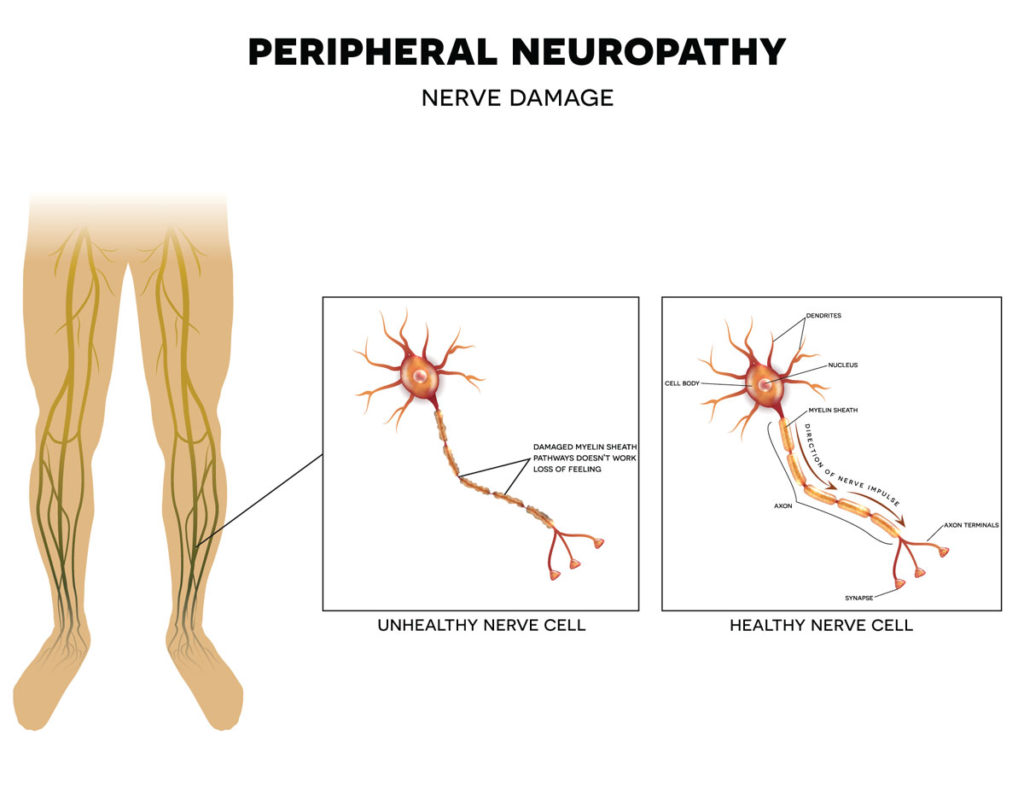Peripheral Neuropathy
Peripheral Neuropathy (PN) is a condition marked by nerve damage, commonly caused by diabetes and chemotherapy. However, in many cases, a definitive cause can not be identified. This nerve damage develops and often worsens over time. Typically, the feet and legs are involved more than the hands. PN can frequently interrupt sleep. Patients with PN experience pain, numbness, burning, tingling and loss of balance, sometimes to extreme degrees. Some patients describe the pain as “walking on razor blades” or “feeling like the feet are on fire”. According to NIH, 60-70% of people with diabetes have some degree of neuropathy.
Vascular disease is the leading contributing factor. Diabetes adversely affects the small blood vessels, reducing blood supply to various part of the body. These patients can also suffer from problems in the eyes, kidneys, heart, and not surprisingly, the lower legs and feet. If left unaddressed, poor blood flow to the feet can result in ulcer formation that can be very difficult to heal.
Typical complications of PN include non-healing or slow-healing wounds, difficulty walking and loss of balance. Many patients become unable to sense an uneven surface when walking (increasing the risk of falling) or a hot surface when bathing or cooking (increasing the risk of burns). Some patients may become unable to drive because they can’t feel if the foot is on the brake or accelerator.
Metabolic factors such as uncontrolled high blood glucose and blood lipids have been shown to cause PN. Various types of smaller nerves within the peripheral nerves can be involved, associated with various symptoms.
Typical medical treatment for PN are pain-reducing or anti-depressive drugs, such as Gabapentin, Neurontin, Lyrica, and Cymbalta. While these have shown short term reduction in pain, they can also produce adverse side-effects or lose their effect over time.
In any event, if you are searching for an alternative approach, one that focuses on restoring blood supply to the nerves with cold laser technology and other modalities/procedures tailored for PN, then call for an evaluation.
You will receive a Neuropathy Severity Assessment, conducted by the doctor. The process takes about 45 min. It includes a medical history review and assessing the amount of sensory damage in the feet across several nerve functions… cold vs heat, vibration, sharp vs dull and position sense. Your results on this assessment will provide a prognosis for your recovery and clinical data for treatment response monitoring.
Certainly, the earlier effective treatment is started, the better the chances are for improvement. So, if you are concerned that you may have Peripheral Neuropathy, call us at 410.721.5050 to get your evaluation scheduled.







